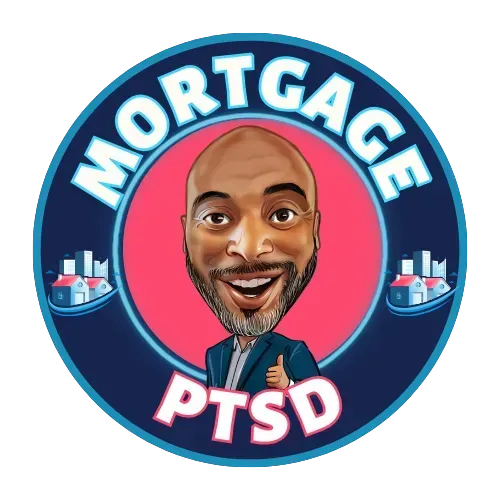Cardinal Financial Blog
Cardinal Financial Blog

Build or Buy? A Guide to Navigating Your Home Ownership Journey
Understanding the Home Ownership Journey: Build or Buy?
Navigating the complex world of home ownership presents two primary paths: building a home from the ground up or purchasing an existing property.This comprehensive guide will help you explore the advantages and potential drawbacks of each option, ensuring you make an informed decision that aligns with your lifestyle, financial goals, and personal preferences.
The Crossroads of Home Ownership
At the heart of home ownership lies a critical choice: Should you build your dream home or buy one that’s already on the market?
Your decision will be influenced by factors such as your financial situation, personal preferences, and long-term vision. By weighing the pros and cons of each approach, you can determine the best path forward.
Key Considerations Before Making Your Decision
Financial Landscape
Before deciding whether to build or buy, consider the following financial factors:
Your current financial health: Assess your credit score, loan eligibility, and available funds.
Budget for home acquisition: Do you have the necessary savings or financing for a home purchase or construction project?
Long-term financial goals: Will this decision impact your long-term investment strategy?
Potential return on investment: How will your home appreciate in value over time?
Location and Market Dynamics
The local real estate market plays a vital role in your decision-making process. According to recent insights from Newrez (2025), location availability and market inventory significantly impact whether building or buying makes more sense.
Some areas may have high demand and limited properties, making building a more attractive option, while others may have a surplus of homes that make buying the more affordable choice.
The Case for Buying an Existing Home
Immediate Benefits
Purchasing an existing home has several advantages, including:
Quick Occupancy: With an existing home, you can move in right away without waiting for construction delays.
Diverse Financing Options: Established homes typically offer more conventional mortgage options.
Proven Neighborhood Infrastructure: Existing homes are often in established communities with schools, shopping centers, and amenities.
Potential Challenges
Despite the benefits, buying a home comes with some challenges:
Competitive Market Conditions: In high-demand areas, bidding wars can drive up prices and make buying more difficult.
Potential Hidden Repair Costs: Older homes may require significant maintenance and repairs.
Limited Customization Options: You may not be able to modify the home to perfectly fit your vision without costly renovations.
The Allure of Building Your Dream Home
Complete Personalization
Building a new home offers unparalleled customization, allowing homeowners to:
Total Design Control: You have the freedom to design a home perfectly suited to your needs.
Modern Efficiency: Incorporate the latest technology, smart home capabilities, and sustainable materials.
Energy-Efficient Solutions: Build with energy efficiency in mind, reducing long-term utility costs.
Financial Considerations
Building a home requires significant financial investment. According to HomeGuide (2023), construction costs range from $500 to $1,000 per square foot. This means that an average 2,500-square-foot home could cost between $1.2 million and $2.5 million.
While building may seem expensive, the ability to design a home that meets your exact needs and includes energy-efficient systems can make it a worthwhile investment.
Hidden Costs and Considerations
Building Costs
Building a home comes with unexpected costs, including:
Site preparation and land development.
Permit and zoning fees.
Landscaping and exterior work.
Utility connections, including water, gas, and electricity.
Buying Costs
Buying a home also has hidden expenses, such as:
Potential renovation costs for outdated structures.
Home inspection fees before finalizing the purchase.
Immediate repairs, such as plumbing or roofing fixes.
Updating outdated heating, cooling, or electrical systems.
Strategic Decision-Making Framework
Essential Steps
Comprehensive Financial Assessment: Determine what you can afford and explore mortgage options.
Market Research: Study both the local real estate market and available properties.
Long-Term Goal Alignment: Consider your future plans and how home ownership fits into your lifestyle.
Professional Consultation: Work with builders, real estate agents, and financial advisors to make the best choice.
Practical Recommendations
Pro Tips for Prospective Homeowners
Get Pre-Approved for Financing: Know your budget and avoid surprises.
Research Local Building Regulations: Understand zoning laws before committing to construction.
Consider Future Resale Potential: Think about how your home’s value will increase over time.
Work with Reputable Professionals: Choose experienced contractors, architects, and inspectors.
Factor in Comprehensive Cost Projections: Avoid underestimating costs by planning for unexpected expenses.
Making Your Ideal Choice
There is no one-size-fits-all answer when it comes to home ownership. Your decision should be guided by:
Your personal financial situation.
Your lifestyle preferences and needs.
Current real estate market dynamics.
Your long-term personal and professional goals.
Final Thoughts: Your Home, Your Journey
Whether you decide to build or buy, remember that home ownership is a highly personal decision. Your choice should reflect your financial health, lifestyle, and long-term vision.
Each path has its own merits—buying provides quick access and convenience, while building grants creative freedom and customization. Carefully weigh your options and choose the best route for you.
Your dream home awaits! Make an informed decision, plan meticulously, and embrace the exciting journey of home ownership.

Fabion Medhanie
Fabion Medhanie

Build or Buy? A Guide to Navigating Your Home Ownership Journey
Understanding the Home Ownership Journey: Build or Buy?
Navigating the complex world of home ownership presents two primary paths: building a home from the ground up or purchasing an existing property.This comprehensive guide will help you explore the advantages and potential drawbacks of each option, ensuring you make an informed decision that aligns with your lifestyle, financial goals, and personal preferences.
The Crossroads of Home Ownership
At the heart of home ownership lies a critical choice: Should you build your dream home or buy one that’s already on the market?
Your decision will be influenced by factors such as your financial situation, personal preferences, and long-term vision. By weighing the pros and cons of each approach, you can determine the best path forward.
Key Considerations Before Making Your Decision
Financial Landscape
Before deciding whether to build or buy, consider the following financial factors:
Your current financial health: Assess your credit score, loan eligibility, and available funds.
Budget for home acquisition: Do you have the necessary savings or financing for a home purchase or construction project?
Long-term financial goals: Will this decision impact your long-term investment strategy?
Potential return on investment: How will your home appreciate in value over time?
Location and Market Dynamics
The local real estate market plays a vital role in your decision-making process. According to recent insights from Newrez (2025), location availability and market inventory significantly impact whether building or buying makes more sense.
Some areas may have high demand and limited properties, making building a more attractive option, while others may have a surplus of homes that make buying the more affordable choice.
The Case for Buying an Existing Home
Immediate Benefits
Purchasing an existing home has several advantages, including:
Quick Occupancy: With an existing home, you can move in right away without waiting for construction delays.
Diverse Financing Options: Established homes typically offer more conventional mortgage options.
Proven Neighborhood Infrastructure: Existing homes are often in established communities with schools, shopping centers, and amenities.
Potential Challenges
Despite the benefits, buying a home comes with some challenges:
Competitive Market Conditions: In high-demand areas, bidding wars can drive up prices and make buying more difficult.
Potential Hidden Repair Costs: Older homes may require significant maintenance and repairs.
Limited Customization Options: You may not be able to modify the home to perfectly fit your vision without costly renovations.
The Allure of Building Your Dream Home
Complete Personalization
Building a new home offers unparalleled customization, allowing homeowners to:
Total Design Control: You have the freedom to design a home perfectly suited to your needs.
Modern Efficiency: Incorporate the latest technology, smart home capabilities, and sustainable materials.
Energy-Efficient Solutions: Build with energy efficiency in mind, reducing long-term utility costs.
Financial Considerations
Building a home requires significant financial investment. According to HomeGuide (2023), construction costs range from $500 to $1,000 per square foot. This means that an average 2,500-square-foot home could cost between $1.2 million and $2.5 million.
While building may seem expensive, the ability to design a home that meets your exact needs and includes energy-efficient systems can make it a worthwhile investment.
Hidden Costs and Considerations
Building Costs
Building a home comes with unexpected costs, including:
Site preparation and land development.
Permit and zoning fees.
Landscaping and exterior work.
Utility connections, including water, gas, and electricity.
Buying Costs
Buying a home also has hidden expenses, such as:
Potential renovation costs for outdated structures.
Home inspection fees before finalizing the purchase.
Immediate repairs, such as plumbing or roofing fixes.
Updating outdated heating, cooling, or electrical systems.
Strategic Decision-Making Framework
Essential Steps
Comprehensive Financial Assessment: Determine what you can afford and explore mortgage options.
Market Research: Study both the local real estate market and available properties.
Long-Term Goal Alignment: Consider your future plans and how home ownership fits into your lifestyle.
Professional Consultation: Work with builders, real estate agents, and financial advisors to make the best choice.
Practical Recommendations
Pro Tips for Prospective Homeowners
Get Pre-Approved for Financing: Know your budget and avoid surprises.
Research Local Building Regulations: Understand zoning laws before committing to construction.
Consider Future Resale Potential: Think about how your home’s value will increase over time.
Work with Reputable Professionals: Choose experienced contractors, architects, and inspectors.
Factor in Comprehensive Cost Projections: Avoid underestimating costs by planning for unexpected expenses.
Making Your Ideal Choice
There is no one-size-fits-all answer when it comes to home ownership. Your decision should be guided by:
Your personal financial situation.
Your lifestyle preferences and needs.
Current real estate market dynamics.
Your long-term personal and professional goals.
Final Thoughts: Your Home, Your Journey
Whether you decide to build or buy, remember that home ownership is a highly personal decision. Your choice should reflect your financial health, lifestyle, and long-term vision.
Each path has its own merits—buying provides quick access and convenience, while building grants creative freedom and customization. Carefully weigh your options and choose the best route for you.
Your dream home awaits! Make an informed decision, plan meticulously, and embrace the exciting journey of home ownership.

Fabion Medhanie
Fabion Medhanie
Licensed In: NV, CA, TX, FL, GA, NC, VA, TN
Address: 5868 Baker RD, Minnetonka, MN, 55345
Phone: 702-766-7762
Email: [email protected]
DATENSCHUTZRICHTLINIE
NMLS-VERBRAUCHERZUGANG
LIZENZIERUNG
EDGE HOME FINANCE NMLS # 891464
© 2023. Alle Rechte vorbehalten | NMLS # 2002997


RESPA Notice of Error/Request for Information, send a request to Attention: Lorem Ipsum. XXX-XXX-XXXX
For licensing information, go to www.nmlsconsumeraccess.org. Cardinal Financial Company, Limited Partnership (NMLS ID 66247). Copyright © 2023 Cardinal Financial Company, Limited Partnership. All trademarks and trade names are the property of Cardinal Financial.

